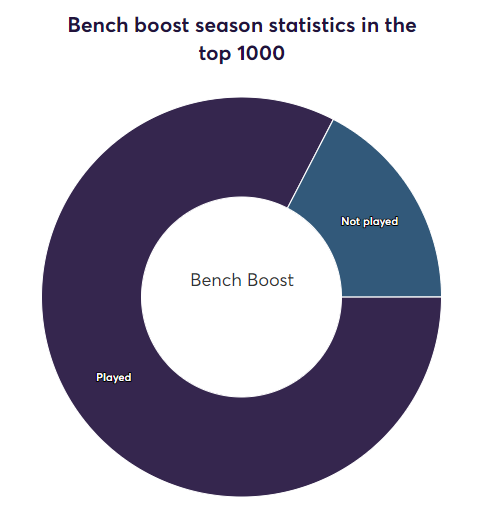As the dust begins to settle on the hectic four Gameweeks which heralded the beginning of our Fantasy Premier League (FPL) season, many of us will take this time to analyse, evaluate, and plan for the Gameweeks ahead.
But for some of us, our overall rank - or position in our mini-leagues - is below our expectations. What’s worse is that all around us we are surrounded by success stories. “She triple-captained Haaland”, “he’s owned Mbeumo from the start”, “she brought in Son instead of Sterling” and we fear that we are being left for dust in a cloud of our own misfortune or poor decision making.
Is this the season you’ll win all of your mini-leagues? Why not get some help by learning from the best FPL managers around. You can follow their every move in real time, just click here to unlock live team reveals.
But, don’t panic! It is too early in the season to be having such thoughts. With the help of our Elite XI managers, we are going to outline five ways to cope with a slow start to the season:
The first and most important thing to remember is that the difference between the rank tiers is currently very small. Consequently, every point gained/lost corresponds to an abnormally large change in the rank. What this means is the impact of every decision feels hugely inflated. If your low-owned player got a hat trick, you will be propelled up the rank table like a rocket. But, it is also means that you are one difficult Gameweek away from falling down a black hole.
According to Live Insight, the average FPL points total of someone ranked in the top 1m is 260.8, compared to 277.6 for a manager in the Top 100k. A difference of just 16.8 points. Between the Top 1k and Top 100k rank tiers, the difference is 25.1 points. This means there are just 41 points separating those in the 1m rank tier (generally considered to be a poor finish), from those in the illustrious and most celebrated rank tier of all.
As the season progresses, the gap between rank tiers widens, and it becomes progressively harder to make up lost ground but, in Gameweek 4, you are just a single hat-trick away from where you want to be. Likewise, those whose positions we envy are equally close to a major rank drop.
It’s still super early. There are 34 Gameweeks - including multiple blanks and doubles to come - to claw back points. A general ambition of being in and around the top 100k overall rank mark by Christmas remains my target [in order to be] on track for a top 5k finish, and is far more reflective than looking at ranks now. Everyone is super bunched when it comes to ranks and a 10-point swing could mean an increase or decrease in overall rank by (circa) 1 million places! - Matt Corbidge (6 x Top 10k finishes)
Another useful tip is to ensure you look forwards not backwards. Just ask the 526,000 managers who brought in Aston Villa’s Matty Cash (£4.6m) after his 17-point haul against Burnley, only for him to actually cost his new owners a point after a horror show at Anfield in Gameweek 4.
Over 500,000 managers transferred in Matty Cash after his 17-point haul against Burnley. 😫 pic.twitter.com/Il0rEnGlmw
— Fantasy Football Fix (@FantasyFootyFix) September 3, 2023
Sometimes the best thing to do is to accept that the points your rivals gained have now gone. You must draw a line in the season and focus on what is ahead. That is not to say we should ignore form - after all, good performances beget confidence - but a haul against a newly promoted team rarely translates into a big score against one of the Premier League’s top six the following week.
Once you’ve engaged the rational part of your brain and started planning, you are able to focus on what’s ahead. It may be that while your rivals are ahead of you, they have done well due to an excess of short-term thinking, which is about to bite them. Possibly they have been so focused on Gameweeks 1-4, that their squad is in a mess for Gameweeks 5-8. Maybe they have already played some of their chips. Perhaps this will be the block of fixtures where you can overtake them?
It's worth having a think about where some of those 50/50 decisions backfired, and you can be the judge of whether it was a mistake or a bad beat. Either way, last week's point are gone and ain't coming back: the weeks ahead are those that count. Make sure you have an idea of how you want to be approach the game, and think your moves calmly through (it's far too early to panic!) and judge how and when you want to address the continuous change in fixtures. It doesn't guarantee a 10k finish, but it does make green arrows more likely than red. - Copenhagen Wednesday (4 x Top 5k finishes)
The opening Gameweeks of any FPL season are all about acquiring knowledge. A Premier League season is always full of surprises. Managers (real life ones that is!) experiment with different tactical set ups, new signings join squads and displace seasoned players, while some established teams will struggle with a harsh run of opening fixtures.
Four Gameweeks is still a relatively small period from which to make any meaningful analysis of data, but it gives us a valuable glimpse into how things may pan out. If you are able to look at your squad and have a starting XI of players who get regular game time, and are not injured or suspended, then you can count this as a win, irrespective of your current rank.
Instead of focusing on where you are relative to others, focus on critically analysing the data. Have you made any genuine errors? Or have you just been unlucky? Chances are it is a combination of both. What are you going to do to improve your squad going forward? What are your priority areas of focus? Do you have a loose plan for when you will play your Wildcard? If so, what transfers will you make to maximise points up to that point?
I can safely say that I have made my worst start to an FPL season. I am last in our [the Elite XI] league, but a mere 40 points behind first, and I don't even think I have done much wrong. So I think the most commonly stated one-liner is "It's not how you start, it's how you finish". There isn't really much you can gain/lose with strategy calls at the start of the season, but this tends to kick in as the season progresses, especially with the deployment of chips and blank and double Gameweeks. - Phil Ampleford (2 x Top 1k finishes)
The key thing at this stage of the season is to realise that FPL strategy is long term. Of course it is frustrating when you are wrong the side of a 50/50 decision. When your FPL asset has been playing well but not hitting the back of the net, yet the alternatives are getting goals from cheap deflections, it can make us want to pull out hair out. But four Gameweeks is a relatively short horizon. Who says, if left alone, your asset won’t match – or even beat! - his counterpart over the next four Gameweeks?
A common narrative in the FPL community goes along the lines of: “if you are ranked at X now, then you need to play more aggressively if your target is Y…”. Don’t listen to this. It is way too early to start altering your behaviour. In fact, it can be dangerous to start changing your ways this early.

82.6% of managers currently in the Top 1k, have already played their Bench Boost chip - click here for FPL Statistics
Differentials are an effective way of getting an edge on your rivals, but they need to be well-researched (see our weekly blog Differential Focus) and they need to be part of a balanced squad which also contains effective and reliable players who (inevitably) will be highly owned.
If it is not usually your playing style to own a lot of differentials, then don’t be changing your ways in Gameweek 5, because the results can be catastrophic if it doesn’t come off.
The season is just 10% over and from a points perspective even less than that with chip strategies and double Gameweeks to come. Having a near permanent captain in Haaland also means points are very tight and a single solid Gameweek can see you rocket up the rankings. Four weeks is far too small of a sample to worry about results. Trust the process you have decided upon until you get more information to adjust. The beginning of the season is always challenging, as information is uncertain. Situations, like Gabriel's surprise benching, are much more frequent early. Don't let yourself get down simply by being on the wrong side of these types of situations. It's bad luck, pure and simple. - Corey Baker (4 x Top 5k finishes)
Many managers make the mistake of focusing on the points lost from decisions they have made but not including the periphery outcomes of said decisions. For example, imagine a manager who had Son Heung-min (£9.1m) in his team throughout pre-season but at the last minute changed it to Martin Ødegaard (£8.5m). They, of course, will be kicking themselves for missing out on the former’s hat-trick. In this instance we look at Son’s 28 points with sad reflection and forget about the 22 points Ødegaard has bagged.
Looking at it this way and the difference is only 6 points. Furthermore, you need to look at how the surplus £0.5m was spent. It could be that the extra budget allowed an upgrade from Jordan Pickford (£4.5m) to André Onana (£5.0m) a decision which earned 6 points. Suddenly, when looking at the net result, there is no points difference!
I've not had a brilliant start to the season, but the most important thing is to have a look at why. For example, I was cold on Mbuemo pre season, and this seems a poor call. I haven't, however, lost out on ALL his points, just those he scored vs his competitor in my team, who was Mitoma. Hardly a terrible decision, in my honest opinion. - Craig Reumert

You can check out the Elite XI: Team Reveal tool by clicking HERE.
Join 89% of our members who won their main mini-league last season.
GET PREMIUM FOR £1Already a Premium user? Login here
© fantasyfootballfix 2024 | Terms of Use | Privacy Policy | Contact Us